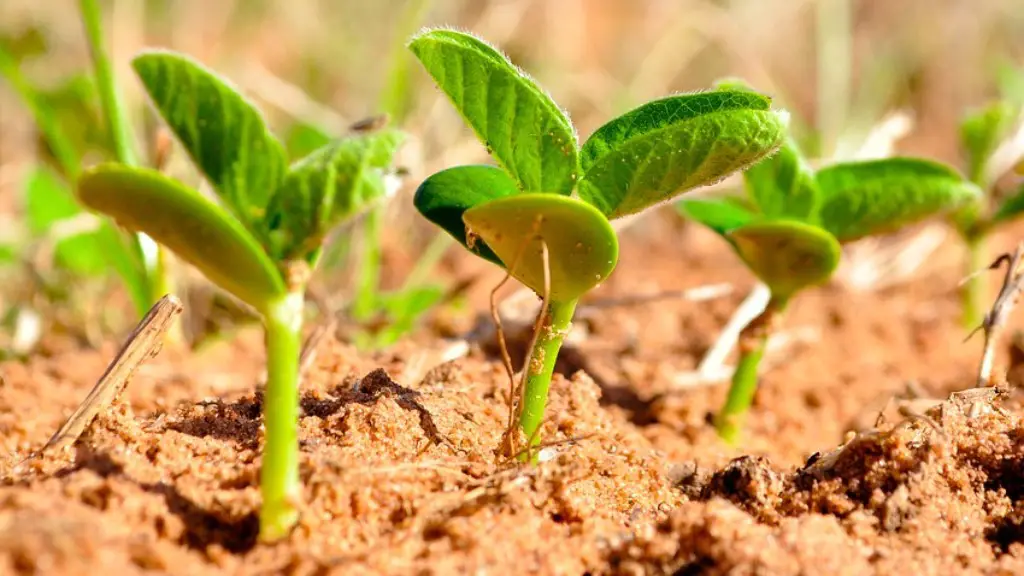Pesticides can be harmful to human agriculture in a number of ways. First, if not used properly, they can contaminate food and water supplies, which can lead to serious health problems for both farmers and consumers. Second, overuse of pesticides can lead to the development of resistance in pests, which can eventually make the pesticides ineffective. Finally, pesticides can be harmful to the environment, killing beneficial insects and causing other ecological problems.
Pesticide use can be harmful to human agriculture in many ways. Pesticides can contaminate the air, water, and soil, which can lead to health problems for people who are exposed to them. They can also kill beneficial insects and other animals that help to pollinate crops and control pests.
How can pesticide be harmful to human agriculture?
Pesticides can linger in the soil for years or decades after they are applied, continuing to harm soil health. The reviewed studies showed impacts on soil organisms that ranged from increased mortality to reduced reproduction, growth, cellular functions and even reduced overall species diversity. These impacts can persist for years, even after the pesticide has been removed from the soil. This is why it is so important to be careful when using pesticides, and to only use them when absolutely necessary.
Pesticides are designed to kill or harm insects, weeds, fungi, and other pests. However, they can also cause health problems in people who are exposed to them. Toxic effects by pesticide exposure can range from mild symptoms, like minor skin irritation or other allergic symptoms, to more severe symptoms, like strong headache, dizziness, or nausea. Some pesticides, eg, the organophosphates, can cause severe symptoms, like convulsions, coma, and possibly even death. Pesticide exposure can occur through skin contact, inhalation, or ingestion. To protect yourself and your family from pesticide exposure, always follow the label instructions when using pesticides, and take precautions to avoid contact with pesticides when they are being applied.
What are 2 effects of pesticides on humans
Pesticides are designed to kill or harm pests, but they can also pose serious risks to human health. Severe exposure to pesticides can cause two types of poisoning: acute poisoning and chronic poisoning. Acute poisoning occurs when someone is exposed to a large amount of pesticide over a short period of time and can lead to serious health effects, including death. Chronic poisoning occurs when someone is exposed to smaller amounts of pesticide over a longer period of time and can lead to health effects that may not be immediately apparent but can be just as serious, if not more so.
Pesticide use can have significant disadvantages, including domestic animal contaminations and deaths, loss of natural antagonists to pests, pesticide resistance, honeybee and pollination decline, losses to adjacent crops, fishery and bird losses, and contamination of groundwater.
How do pesticides affect humans and animals?
Pesticide exposure can be linked to cancer, endocrine disruption, reproductive effects, neurotoxicity, kidney and liver damage, birth defects, and developmental changes in a wide range of species. Exposure to pesticides can also alter an organism’s behavior, impacting its ability to survive.
Pesticides are designed to kill or harm pests. However, all pesticides are toxic and can be harmful to humans, animals, and the environment if not used properly. It is important to read the label carefully and follow the instructions when using any pesticide.
How do pesticides affect human health and environment?
Pesticides are chemicals that are used to kill pests. However, these chemicals can also be harmful to humans. The chemicals can bioaccumulate in the body over time. This means that the chemicals can build up in the body, and the effects can be cumulative. Exposure effects can range from mild skin irritation to birth defects, tumors, genetic changes, blood and nerve disorders, endocrine disruption, coma or death. Developmental effects have been associated with pesticides. This means that exposure to pesticides can cause problems with development, and this can be passed on to future generations.
Pesticides are designed to kill living things, so it’s not surprising that they can also cause serious health problems in people. Long-term exposure to pesticides can cause loss of memory, anxiety, mood changes, and trouble concentrating. Damage to the immune system: Some pesticides weaken the immune system, which protects the body from disease. Pesticides have also been linked to cancer, brain damage, and other serious health conditions.
What are 3 known adverse effects of pesticides on farm workers and their families
Pesticide exposure is a major public health concern due to the potential for chronic health problems. Studies have linked pesticide exposure to cancer, infertility, neurological disorders, and respiratory conditions. Pesticide exposure can occur through dietary intake, occupationa exposure, and residential exposure. reducing pesticide exposure is critical to protecting public health.
Pesticides are highly toxic in nature and their residues can persist in water and other parts of the environment for a long time. This can cause serious problems for the ecological balance as well as for human health.
Do pesticides cause more harm than good?
Pesticides can harm more than just the pests that they are meant to target. They are toxic and exposure to them can cause a number of health problems, ranging from respiratory problems to cancer. Pesticides should be used sparingly and only when absolutely necessary to protect the health of those who are exposed to them.
Paraquat is extremely poisonous to people; just one small accidental drink can be deadly and there is no cure. Product labels make it explicitly clear that pouring paraquat into food or beverage containers is strictly forbidden, with prominently-placed statements that say “NEVER PUT INTO FOOD, DRINK OR OTHER CONTAINERS”.
Which types of pesticides are most toxic to humans
Fungicides were the most toxic from concentrations 300–600 times lower than agricultural dilutions, followed by herbicides and then insecticides, with very similar profiles in all cell types. Despite its relatively benign reputation, Roundup was among the most toxic herbicides and insecticides tested. In vitro, Roundup was more toxic than diquat and paraquat, two well-known herbicides that are notoriously toxic. Roundup was also more toxic than the insecticides malathion and chlorpyrifos, which are both highly toxic to humans.
Pesticide exposure is a serious problem for farmworkers. Every year, thousands of farmworkers suffer from chemical-related injuries and illnesses, and many of them die as a result. The short-term effects of pesticide exposure can be extremely dangerous, and even fatal. If you work on a farm, it is important to take precautions to protect yourself from exposure to these harmful chemicals.
Are farmers harmed by pesticides?
In California, there is an annual problem of farmworkers getting poisoned by pesticides. This is a very serious issue and transitioning off of agriculture that depends heavily on pesticides is one way to address the problem. There are other ways to address the issue as well, but this is an important step in the right direction.
Pesticides are designed to kill pests, but they can also cause harmful side effects to the environment. Soil, water, and air pollution can all occur when pesticides are used, and non-target creatures like plants, birds, mammals, fish, and crops can be damaged as well. To protect the environment, it is important to use pesticides only when necessary and to follow all safety instructions when using them.
Conclusion
Pesticide use can be harmful to human agriculture in a number of ways. First, if pesticides are not used correctly, they can harm or kill people working with or near them. Second, pesticides can contaminate food and water supplies, making people sick. Third, pest populations can become resistant to pesticides over time, making them less effective and necessitating the use of more and more toxic pesticides. Finally, pesticides can harm the environment, polluting soil and water and killing nontarget organisms.
Pesticide use can be harmful to human agriculture because it can pollute water supplies and damage crops.





